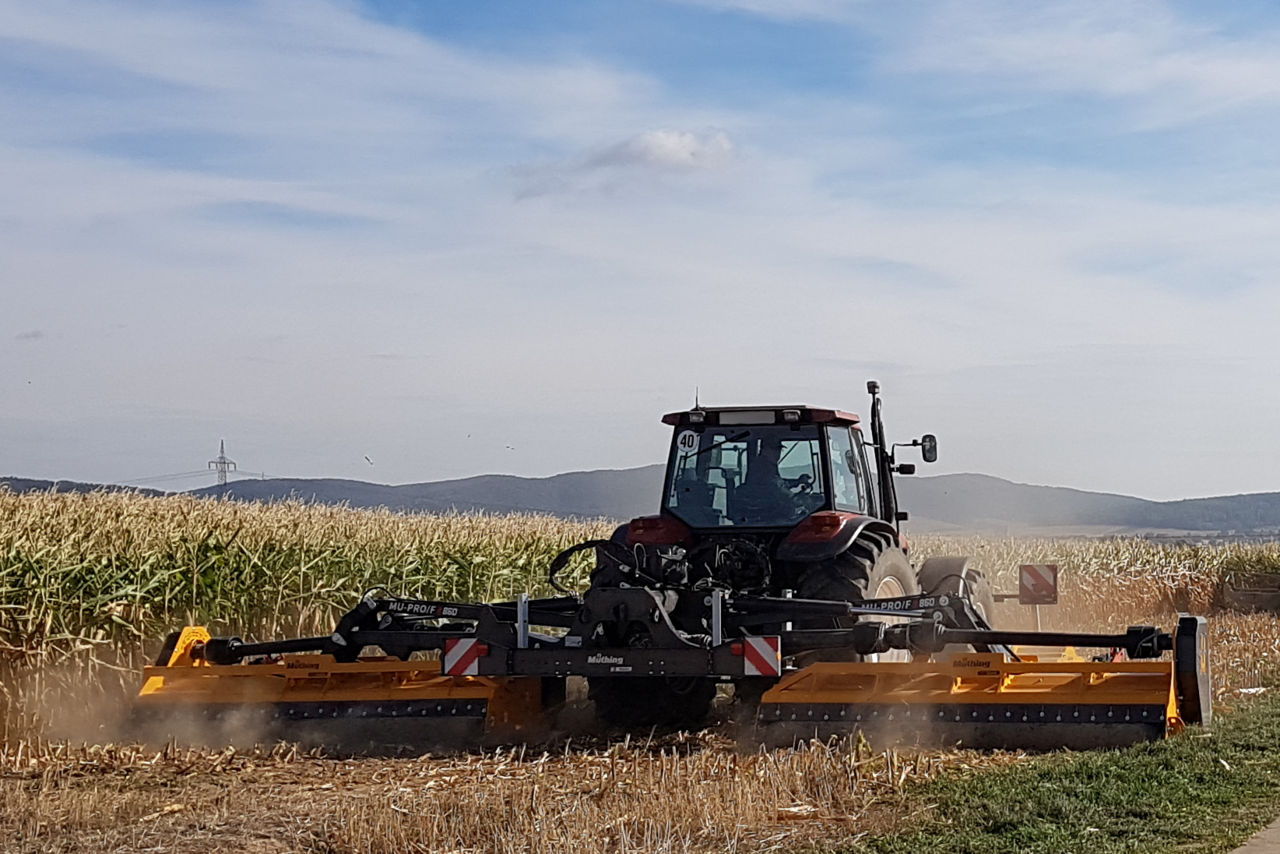Project
Win-N

Effect of inhibited ammonium sulphate urea on the increase of the nitrogen use efficiency and reduction of ammonia and nitrous oxide emissions due to mineral fertilization
The focus of Win-N is increasing the N use efficiency and competitiveness in the cultivation of commodity crops in combination with reducing nitrous oxide and ammonia emissions through the use of urease and nitrification inhibitors.
Background and Objective
In order to achieve the target set by the Paris Agreement on Climate Change, the German government set itself the goal of being climate neutral by 2045 in a recent decision of May 2021. An important step towards this goal is the reduction of greenhouse gas emissions in agriculture to 58 million t of CO2 equivalents by 2030. This means a tightening of previous reduction targets. According to the Federal Environment Agency, the agricultural GHG emissions decreased from 88 million t in 1990 to 66 million t in 2020. However, with a continuous trend this is still insufficient to reach the aspired goal for 2030. In 2019 approximately 81 % of all nitrous oxide emissions were caused by agriculture and accounted for 46 % of agricultural GHG emissions. A large proportion of these emissions is directly or indirectly caused by the application of mineral fertilizers. However, up to 75 % of ammonia and 35 % of nitrous oxide emissions can be avoided with urease and nitrification inhibitors.
The overall objective of the project is therefore to reduce N-emissions and to achieve a significant increase in nitrogen fertilization efficiency through the use of inhibitors in mineral nitrogen fertilization.
Target Group
The results of the research project will be communicated via the nationwide expert network THEKLA (greenhouse gas balancing and climate protection in agriculture). The research results will thus be available to application-oriented researchers in the field of climate-optimised agriculture as well as for advising agricultural enterprises. Furthermore, they can serve as a basis for political decision-makers to support compliance with the climate protection goals described above in the agricultural sector.
Approach
The reduction of N-emissions and the effect on yield when using inhibitors will be quantified in a crop rotation at four sites with maize, winter wheat and winter barley. The Thünen Institute of Agricultural Technology is in charge of project coordination as well as the design, construction and maintenance of a database containing the data generated in the project. Furthermore, the Thünen Institute is responsible for the preparation of the combined ecological and economic assessment of the management options by means of an eco-efficiency analysis and cooperates closely with the collaborative partners for this purpose.
In order to achieve the project objectives
- integrated gas measurements of NH3 and N2O under field conditions,
- leaching tests using lysimeters to determine the volume and the resulting nitrate leaching risk and
- laboratory incubation experiments to determine actual N2 emissions
will be conducted.
The latter is essential for deriving N fertilization rates, particularly since gaseous N2 losses are of crucial importance for evaluating the nitrogen use efficiency. The success of the measures is evaluated by calculating three-year N balances including N-species emissions and eco-efficiency analyses. Furthermore, model calculations are used to determine the ecotoxicological effect and the fate of the inhibitors in the environment.
By conducting field- and lysimeter experiments on the crop sequence of maize, winter wheat and winter barley, the effects of the following treatments will be investigated:
- Unfertilized control (field experiments only)
- Ammoniumsulfate-urea (AS-U)
- AS-U + urease inhibitor
- AS-U + urease- and nitrification inhibitor
Our Research Questions
- How much ammonia emissions can be avoided with urease inhibitors when using AS-U fertilizer?
- Can the use of the nitrification inhibitor also reduce both N2O and NO3 emissions beyond the growing season when using AH-HS fertilizer, or is there merely a time delay or shift in emissions?
- Can an overall improvement in N fertilizer efficiency and economic efficiency be achieved through the use of the inhibitors?
- Are the inhibitors equally effective at different sites in terms of their N emission reduction potential and increasing N fertilization efficiency?
- Does the use of urease and nitrification inhibitors in N fertilization lead to undesirable ecotoxicological effects in soil and/or leachate?
Thünen-Contact

Involved Thünen-Partners
Involved external Thünen-Partners
- Leibniz-Zentrum für Agrarlandschaftsforschung (ZALF) e.V.
(Müncheberg, Deutschland) - Stickstoffwerke Priesteritz (SKWP)
(Priesteritz, Deutschland) -
Universität Hohenheim
(Hohenheim, Deutschland) -
Martin-Luther-Universität Halle-Wittenberg
(Halle (Saale), Deutschland) - Sächsisches Landesamt für Umwelt, Landwirtschaft und Geologie (LfULG)
(Nossen, Dresden, Deutschland) -
Fraunhofer-IME
(Aachen, Deutschland)
Funding Body
-
Federal Ministry of Food und Agriculture (BMEL)
(national, öffentlich)
Duration
3.2021 - 2.2024
More Information
Project funding number: 2220NR082A
Funding program: FNR
Project status:
finished

![[Translate to English:] [Translate to English:]](/media/_processed_/3/6/csm_Hintergrund-Ausschnitt1_9daaef6b89.jpeg)
![[Translate to English:] [Translate to English:]](/media/_processed_/3/6/csm_Hintergrund-Ausschnitt1_0bd7111163.jpeg)
![[Translate to English:] Logo des Bundesministerium für Ernährung und Landwirtschaft](/media/allgemein/logos/BMEL_Logo.svg)